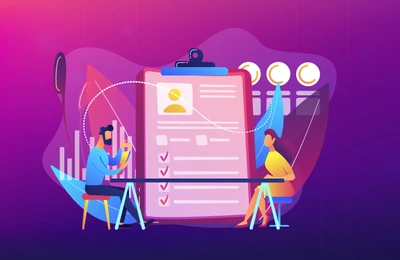Table of Contents
Management and Engineering, two of the most sought-after career options after class 12th. But how do you decide which is the right one for ?
You may have a knack for pitching ideas or have an aptitude for building practical gadgets from scratch. You may may be an extrovert or an introvert. You may have high levels of EQ or IQ. Depending on whichever category you fall, you will have an inclination towards a particular field. However, to turn that vague inclination into a solid determination to pursue either of these disciplines, you need to have thorough understanding of everything included in these disciples—from curriculums to beyond.
Eligibility Criteria
Undergraduate Study
Management – Candidates who have completed their class 12th from a recognised board from any stream with a minimum of 50% marks are eligible for applying to Bachelor’s in Business Administration (BBA) colleges.
Engineering – Candidates who have completed their class 12th from a recognised board with science and maths (PCM/PCMB) with a minimum of 50% marks are eligible for applying to Bachelor’s in Technology (B.Tech) colleges. But, here you must note that certain top engineering colleges do not accept percentages below 75%.
Postgraduate Study
Management – Candidates who have completed their undergraduation in any stream from a recognised university with at least 50% of marks are eligible for applying to Master’s in Business Administration (MBA) colleges.
Engineering – Candidates who have completed their undergraduation in BE/B.Tech. from a recognised university with at least 50% marks are eligible for applying to Master’s in Technology (M.Tech) colleges.
Required Skills
Management
The most important skills required to excel in this field are interpersonal skills, communication skills, strategic planning, decision-making, and awareness of consumer behaviour.
Engineering
The most important skills required to excel in this field are technical skills, problem-solving skills, analytical thinking, creativity, and innovative mind.
Entrance Exams
Management
If you want to apply for a bachelor’s degree, you can take the following entrance exams:
- IPMAT
- CUET
- NMIMS NPAT
- IPM Aptitude Test
- DU JAT
If you want to apply for a Master’s degree, you can take the following entrance exams:
- CAT
- GMAT
- MAT
- XAT
- NMAT
- SNAP
Engineering
For a bachelor’s degree in engineering, the following entrance exams are held:
- JEE Main
- BITSAT
- SRMJEEE
- VITEEE
- AEEE
For a Master’s degree in engineering, the following entrances exams are held:
- GATE
- IPU CET
- SRMJEEE PG
- BHU PET
- OJEE
- TANCET
Note: Application for all the entrance exams mentioned above is subject to the University’s decision as to when to release the forms and the exams be conducted. Thus, it is advisable to keep checking the respective university’s website for any updates.
Syllabus
Management
Undergraduation
Semester I
- Financial Accounting
- Microeconomics
- Principles of Management
- India Socio-Political Economics
- Quantitative techniques – I
- Essentials of IT
Semester II
- Macroeconomics
- Quantitative Techniques – II
- Effective Communications
- Cost Accounting
- Environmental Management
- Principles of Marketing
Semester III
- Banking & Insurance
- Indian Economics in Global Scenario
- Operations Research
- Direct Tax & Indirect Tax
- Human Resource Management
- Consumer Behavior & Services Marketing
Semester IV
- Human Behavior & Ethics at Workplace
- Management Accounting
- Business Analytics
- Business Law
- Financial Management
- Customer Relationship Management
Semester V
- Strategic Management
- Research Methodology
- Finance Electives
- Financial Statement Analysis
- Advanced Financial Management
Semester VI
- International Business & EXIM
- Finance Electives
- Operations & Supply Chain Management
- Marketing Electives
- Entrepreneurship & Business Plan
Post-graduation
Semester I
- Corporate Social Responsibility
- Microeconomics
- Principles of Marketing Management
- Principles of Accounting
- Tools and Framework of Decision Making
- Quantitative Methods and Statistics
- Business Communication and Soft Skills
- Organizational Behaviour 1
Semester II
- Macroeconomics
- Business Law
- Operations Management
- Optimization and Project Research
- Corporate Finance
- Project Management
- Marketing Management
- Organizational Behavior 2
Semester III
- Depends on the specialisation you choose.
Semester IV
- Internship Projects
Engineering
Undergraduation
Semester I
- Systems in Mechanical Engineering
- Basic Electrical Engineering / Basic Electronics Engineering
- Programming and Problem Solving / Engineering Mechanics
- Engineering Mathematics-I
- Engineering Physics
- Engineering Chemistry
Semester II
- Programming and Problem Solving / Engineering Mechanics
- Engineering Graphics (Engineering Drawing)
- Project-Based Learning
- Physical Education-Exercise and Field Activities
- Engineering Mathematics-II
- Engineering Physics/ Engineering Chemistry- Basic Electrical Engineering / Basic Electronics Engineering
Semester III
- Building Technology and Architectural Planning
- Engineering Geology
- Awareness of civil Engineering Practices / Road Safety Management / Foreign Language
- Mechanics of structure
- Fluid Mechanics
- Engineering Mathematics III
Semester IV
- Geotechnical Engineering
- Project management
- Project-based learning
- Survey
- Concrete Technology
- Structural Analysis
Semester V
- Structural Design –I
- Structural analysis – II
- Fluid Mechanics – II
- Hydrology and water resource engineering
- Infrastructure Engineering and Construction Techniques
- Electives Lab
- Dissertation (Minor)- I
- Industrial Project
Semester VI
- Foundation Engineering
- Structural Design – II
- Environmental Engineering – I
- Advanced Surveying
- Project Management and Engineering Economics
- Internship
- Dissertation (Minor)- II
Semester VII
- Environmental Engineering II
- Transportation Engineering
- Structural Design and Drawing III
- Elective – I
- Elective –II
- Dissertation (Major)- I
Semester VIII
- Dams and Hydraulic Structures
- Quantity Surveying, Contracts, and Tenders
- Elective- III
- Elective- IV
- Dissertation (Major)- II
- Industrial Management
Post-graduation
The syllabus of M.Tech. depends on the specialisation you opt for.
Job Profiles and Average Salaries
Management
The job profiles offered to candidates are based on the specialisation you choose from Sales and Marketing, Finance, Human Resources (HR), IT and Systems, International Business, Operations, Healthcare and Hospital, Retail, Supply Chain, Entrepreneurship, Business Analytics. Some of the job profiles and the average salary offered to individuals with these profiles are given below:
- Senior Sales Executive- INR 2.8 LPA
- Operations Manager- INR 12.5 LPA
- Human Resource Generalist- INR 3.4 LPA
- Business Development Management- INR 14.4 LPA
- Human Resources Manager- INR 6.32 LPA
- Business Analyst (IT)- INR 5.27 LPA
- Management Consultant- INR 11.28 LPA
- Financial Analyst- INR 4.14 LPA
- Area Sales Manager- INR 6 LPA
- Account Manager- INR 5.86 LPA
- Regional Sales Manager- INR 11.4 LPA
- Management Consultant- INR 11.28 LPA
Engineering
Here too the job profiles are dependent on which branch of specialisation you choose to pursue engineering in from Computer Science, Aerospace, Mechanical, Chemical, Civil, Electrical, Ceramic, Marine, Electronics and Communication, Petroleum, Metallurgical, and Electronics and Electrical Engineering.
Below are some of the job profiles and the respective average salaries:
- Computer Science Engineer- ₹8 LPA
- Mechanical Engineer- ₹3.8 LPA
- Mining Engineer- ₹6 LPA
- Ceramic Engineer- ₹3.5 LPA
- Civil Engineer- ₹3.4 LPA
- Production Engineer- ₹2.3 LPA
- Automobile Engineer- ₹4.1 LPA
- Robotics Engineer- ₹3.9 LPA
- Chemical Engineer- ₹6 LPA
- Electrical Engineer- ₹3.7 LPA
- Marine Engineer- ₹8 LPA
- Construction Engineer- ₹5 LPA
- Aerospace Engineer- ₹6 LPA
- Telecommunication Engineer- ₹3.8 LPA
- Aeronautical Engineer- ₹7 LPA
Top Recruiters
Management
- Amazon
- Apple
- BCG
- JP Morgan
- Deloitte
- Accenture
- Morgan Stanley
- AT Kearney
- Microsoft
Engineering
- Apple
- Morgan Stanley
- JP Morgan
- TATA Consultancy
- Millenium
- ISRO
- Microsoft
- HSBC
- ICICI
- Amazon
Frequently Asked Questions (FAQs)
Definitely. One of the perks of management degree is that candidates from any stream/discipline are eligible to apply for admission.
It depends entirely on where your interests lie. As far as you take into consideration how lucrative each is, they both are lucrative. So, take a decision based on what you like more—building businesses or building machines?
It sure is. There are other entrances such as BITSAT and SRMJEEE. You could also get into private colleges on the basis of class 12th merit without any entrance exams.
In general, management colleges ( especially if you want to pursue a master’s degree) cost more than engineering colleges.
Computer Science, Aerospace, Mechanical, Chemical, Civil, Electrical, Ceramic, Marine, Electronics and Communication, Petroleum, Metallurgical, and Electronics and Electrical Engineering are the different branches you can opt during engineering.
Sales and Marketing, Finance, Human Resources (HR), IT and Systems, International Business, Operations, Healthcare and Hospital, Retail, Supply Chain, Entrepreneurship, Business Analytics are the different specialisations you can choose from.
Yes, you can. These companies do hire MBA graduates. Your chances of getting placed in these companies is greater if you are from top MBA colleges.






